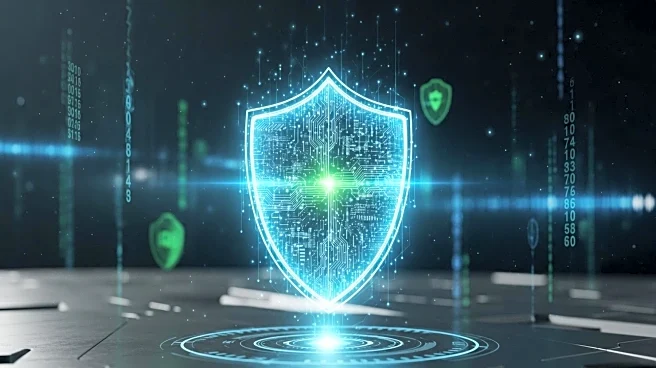What is the story about?
What's Happening?
Artificial Intelligence is increasingly being utilized as a powerful tool in cybersecurity, offering real-time threat detection and rapid response capabilities. AI systems can adapt and evolve, learning from new data to better identify and address emerging threats. Security strategist Andre Piazza highlights predictive AI's ability to anticipate attacks before they occur, allowing for automated defensive decisions and enhancing productivity for security teams overwhelmed by alerts and false positives.
Why It's Important?
The integration of AI into cybersecurity is crucial as threats become more sophisticated. By leveraging AI, organizations can improve their defense mechanisms, reducing the risk of data breaches and cyberattacks. This advancement is particularly significant for industries handling sensitive information, such as financial services and healthcare, where security is paramount. AI's ability to automate responses also alleviates the burden on security personnel, allowing them to focus on more complex tasks.
What's Next?
As AI continues to evolve, cybersecurity teams may explore further applications of AI technologies to enhance their security frameworks. Collaboration between AI developers and cybersecurity experts could lead to more advanced solutions. Additionally, regulatory bodies might develop new standards to ensure the ethical use of AI in cybersecurity, addressing concerns about privacy and data protection.
Beyond the Headlines
The use of AI in cybersecurity also prompts discussions about ethical considerations, such as the potential for AI systems to infringe on privacy rights. Ensuring transparency and accountability in AI-driven security measures is essential to maintain public trust. Moreover, the reliance on AI could lead to a skills gap in the cybersecurity workforce, necessitating training and education initiatives.
















